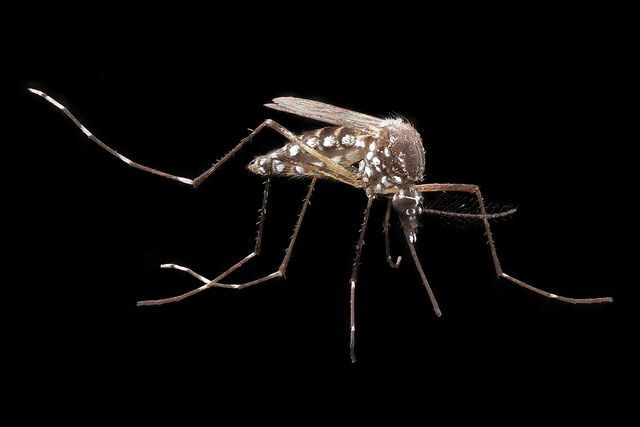Will Italy see the return of malaria? 4-year-old girl's death sparks concerns
The girl died from malaria despite not travelling abroad.

A four-year-old girl from northern Italy has died of cerebral malaria, it was recently announced. The case is puzzling Italian healthcare officials as the country was declared malaria free in 1970, and the girl, Sofia Zago, had not been abroad.
Although Italy was one of the most endemic European countries for malaria during the 20th century – until DDT was used to eradicate it – the scientific puzzle shrouding the girl's death is the fact that it was caused by Plasmodium falciparum, which is mainly found in Africa. The likelihood that an Italian mosquito transmitted the disease is very small.
In fact, it has been reported that investigators are considering that Zago may have been infected with a re-used needle when she was being treated for her diabetes at Santa Chiara hospital. (A family, who'd recently returned from a trip to Africa, were being treated for malaria at the same hospital.) However, this is still speculation.
Only a scientific investigation will be able to provide us with a definite answer to this mysterious event. So until the ongoing investigation is concluded, no possibility can be ruled out – not even that the girl contracted malaria from a local mosquito.
How possible is this?
The Plasmodium microorganism that causes malaria in humans comes in four types: P. falciparum (the most deadly), P. malariae, P. ovale and P. vivax. They are all transmitted by the bite of the female Anopheles mosquito (the males don't bite).
Some studies have shown that there is a potential – but very low – risk of Anopheles lubrianchae (the species of mosquito commonly found in Italy) transmitting the less aggressive parasite species Plasmodium vivax in some regions of central and southern Italy. But local mosquitoes are much less likely to be susceptible to P. falciparum, and their distribution is mainly restricted to the central and southern regions of Italy.
Given the relatively low number of imported malaria cases, scientists view the reintroduction of malaria in Italy as highly unlikely.
Migration from Africa
The last few years have seen a massive increase in migrants arriving in Europe from Africa. This has also led to an increase in the number of malaria cases detected by the surveillance systems set up in various European countries, especially in the Mediterranean region.
In addition to the relatively high number of imported cases of malaria from sub-Saharan Africa to the whole of Europe, as travel and flight connections increase, the chance of importing African mosquitoes that can carry P. falciparum has also strongly risen. It has been observed that mosquitoes can be imported from malaria endemic countries to Europe.
Travellers who visit or live in endemic areas might inadvertently transport live mosquitoes that get trapped in their luggage. So the Italian healthcare system's investigation into Zago's death cannot rule out, for now, the possibility that she was infected by mosquitoes carried by planes from areas where P. falciparum is rife.
The occurrence of this unexpected malaria case in Italy also highlights the importance of surveillance systems which are fundamental for the timely detection of tropical diseases introduced to European countries. However, disease detection should then be followed by a thorough epidemiological investigation. This allows public health officials to identify the real causes of diseases and thwart future cases. The current investigation may provide useful information that will help to prevent the future occurrence of malaria cases in Italy.
Given the strong evidence from previous studies that malaria in Italy is unlikely to re-emerge and that none of the Italian mosquito species are able to efficiently carry and transmit P. falciparum, it is also highly unlikely that the girl's death signals the start of a major public health threat – species distribution shift due to climate change notwithstanding. However, until the scientific investigation is concluded, everything is merely an educated guess.
Emanuele Giorgi is a Senior Research Associate at Lancaster University and Donal Bisanzio is a Senior Postdoctoral Modeller at the University of Oxford.
This article was originally published on The Conversation. Read the original article.
© Copyright IBTimes 2025. All rights reserved.





















